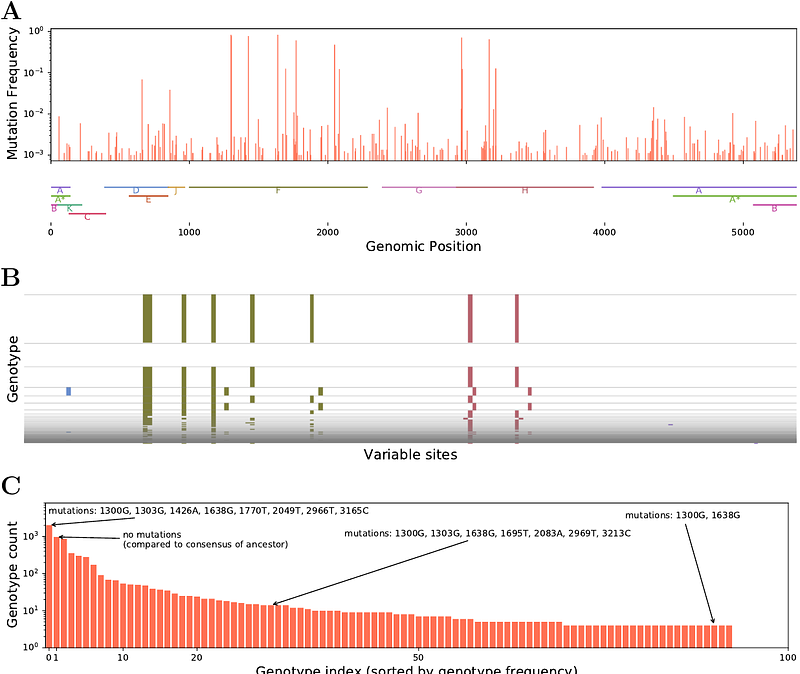Parallel evolution of full-length genomes in a long-term evolution experiment with phage ΦX174

Parallel evolution of full-length genomes in a long-term evolution experiment with phage ΦX174
Bons, E.; Chabas, H.; MacDonald, H.; Escalera Ledermann, A.; Ochsner, N.; Angst, D. C.; Bonhoeffer, S.; Regoes, R. R.
AbstractThe study of evolution in organisms with high mutation rates requires detailed data on the genomic composition of the population. Here we report on an innovative use of high-throughput sequencing technology combined with rapid experimental evolution that allowed us to follow the genetic diversification of four independent bacteriophage populations that we evolved without imposing any direct selection pressure for 412 generations in unprecedented detail. Tracing over 80000 bacteriophage genomes, of which 884 are unique, we find that evolution is largely neutral but document multiple instances of parallel evolution. Unlike previous observations of parallelism, we do not just see the parallel evolution of mutations at single sites, but on the level of full-length genomes. Computer simulations that recapitulate our experiments in great detail show that this degree of paralellism is inconsistent with neutral evolution. We further show that the observed extent of parallel evolution biases phylodynamic analysis of migration rates, and wrongly estimates significant migration between the independent evolution lines. Our approach is applicable to many other viruses and paves the way to advanced population genetic investigations that aim to shed light on phenomena that relate to genetic linkage across the genome.